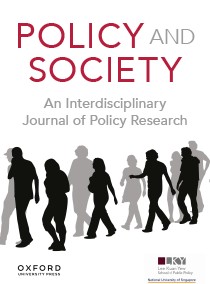Producing decent work indicators: contested numbers at the ILO
IF 6.1
1区 社会学
Q1 POLITICAL SCIENCE
引用次数: 0
Abstract
The article investigates the production of decent work indicators within the ILO, to demonstrate that developing measurement infrastructures in global policymaking requires political work. The concept of decent work responds to the perceived marginalization of the ILO in social and labor policy and was supposed to provide a new unifying normative framework for the organization. The article shows that creating decent work indicators encountered challenges due to its highly politicized production process. Proponents of quantification (mostly workers’ representatives) and opponents (mostly employers’ representatives) disagreed about the function of indicators: should they be country-specific or allow for universal assessment of progress from above. In effect, although indicators of decent work have been integrated into the Sustainable Development Goals—mostly as part of goal no. 8, many are still incomplete. As a result, the indicators did not establish a “framework of assessment,” which would have been guided by universal standards of progress allowing the ILO to “govern at a distance,” and could not initiate a paradigmatic policy shift, impeding the infrastructuralization of measurement. Theoretically, the article advances our understanding of policy formulation and design on the transnational level by showing the political foundation of knowledge-based instruments. Empirically, it rests on a Grounded Theory-based analysis of key ILO documents, including Governing Body minutes, conference and expert meeting reports, and official publications, mainly from the period from 1998 to 2015.制定体面工作指标:国际劳工组织有争议的数字
本文调查了国际劳工组织内体面工作指标的产生,以证明在全球政策制定中发展衡量基础设施需要政治工作。体面工作的概念反映了劳工组织在社会和劳工政策方面被边缘化的情况,本应为该组织提供一个新的统一的规范框架。文章表明,由于其高度政治化的生产过程,创造体面劳动指标遇到了挑战。量化的支持者(主要是工人代表)和反对者(主要是雇主代表)在指标的功能上存在分歧:它们是针对具体国家的,还是允许从上面对进展进行普遍评估。事实上,尽管体面工作指标已被纳入可持续发展目标——主要是作为目标1的一部分。许多仍未完成。结果,这些指标没有建立一个“评估框架”,该框架本应以允许国际劳工组织“远距离治理”的普遍进展标准为指导,也无法启动范式政策转变,阻碍了衡量的基础设施化。从理论上讲,本文通过展示以知识为基础的工具的政治基础,促进了我们对跨国层面政策制定和设计的理解。从经验上看,它基于对国际劳工组织主要文件的扎根理论分析,包括1998年至2015年期间的理事机构会议纪要、会议和专家会议报告以及官方出版物。
本文章由计算机程序翻译,如有差异,请以英文原文为准。
求助全文
约1分钟内获得全文
求助全文
来源期刊

Policy and Society
Multiple-
CiteScore
18.00
自引率
6.50%
发文量
43
审稿时长
30 weeks
期刊介绍:
Policy and Society is a prominent international open-access journal publishing peer-reviewed research on critical issues in policy theory and practice across local, national, and international levels. The journal seeks to comprehend the origin, functioning, and implications of policies within broader political, social, and economic contexts. It publishes themed issues regularly and, starting in 2023, will also feature non-themed individual submissions.
 求助内容:
求助内容: 应助结果提醒方式:
应助结果提醒方式:


